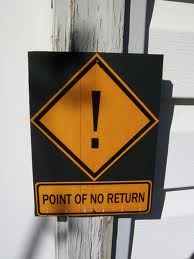Life has lessons to teach me every time I turn around. Most of the time I miss them because I am busy worrying about what’s coming up or I’m preoccupied with something I’ve already done, fearful that it is going to blow up, figuratively, not literally. In short, I live distracted much of the time, not appreciating the educational drama right in front of me.
I spent most of my career doing the work of a psychologist, attending to the delicate yet resilient human spirit, helping others explore and better understand the forces within them that kept them stuck in some uncomfortable or even life threatening emotional or interpersonal situation.
 These days I’m a handyman, helping others with minor repairs and larger renovations. Yesterday I changed light bulbs for an elderly man who had no business climbing a ladder. I spent most of my day putting in a new toilet as part of a bathroom renovation. The toilet was my teacher yesterday, as a handyman and as a human being.
These days I’m a handyman, helping others with minor repairs and larger renovations. Yesterday I changed light bulbs for an elderly man who had no business climbing a ladder. I spent most of my day putting in a new toilet as part of a bathroom renovation. The toilet was my teacher yesterday, as a handyman and as a human being.
What usually takes me an hour took me five hours. Everything that should have connected easily did not. Everything that should have been a specific length was not. Everything I should have had in my toolbox was not there. The simple task required two trips to Home Depot, two trips to Lowes, and two trips to my garage. Fortunately all these were within 5 miles of each other. Otherwise I would have been taking hostages.
A short list of the problems (so you’ll have some idea of the situation but not so detailed that you’ll get bored) included: The flange that is built into the floor that the toilet attaches to was bent and the bolts would not hold. The floor that I had just finished with nice white tile was not level and the toilet rocked. The hose connecting the toilet (taller than the previous toilet) to the water source was now too short, and it was the longest standard hose I could buy. The little chain inside the tank that allows the flapper to open and close was set too short by the factory and I had to use my reading glasses and two small needle-nose pliers to fix it.
There was a lot of improvising and a lot of cursing involved, but I got it done. I go back today to see if the floor is still dry and the dang thing is still sitting level and solid.
So here are three things that I continue to learn every time something like this happens.
Don’t panic
First, I have to fight panic every time I break into a cold sweat and think, “I’m not going to be able to get this done!” I have to breathe deeply for a few seconds and give myself some time. Otherwise I begin to mentally and emotionally run downhill, picking up speed until I eventually end up flat on my face. “I can’t do this. I’m not going to be able to figure this out. In fact, I shouldn’t be doing this. Now everyone is going to know I don’t know what I’m doing. What was I thinking? I’m an idiot!” You get the idea.
It’s my job
Hanging in there and holding off the panic allows me to experience the second lesson. I eventually get to the place of saying, “This is my job.” This seems simple, but it’s not. I first began using this statement as a parent. In those moments when I needed to ask my kids the tough questions, bring up the uncomfortable topics, or confront them about something I knew that they thought was a well-kept secret, my tendency was to ignore the situation and hope it got resolved without me. Eventually I realized, “This is my job. I am the parent. If I don’t do this, no one else will.” If I wanted my relationship with my kids to grow, I had to do my part as a parent.
That statement served me well as a psychologist. In that role, too, it was my job to ask the tough questions, make the uncomfortable observations, and help clients step into emotional and interpersonal situations that terrified them. “It’s my job.” If I am not willing to step into my responsibility, my part of the transaction, how can I expect anyone else to do that? Doing my part allows the flow of life and interaction to continue. Otherwise I contribute to stagnation.
 As a handyman, there are many moments during a job that I have to remind myself of this fact. Every time I hit one of those “points of no return” on a job, I walk around it, remeasure, refigure, anticipate everything that might go wrong, but eventually it is my job to cut the water pipe, believing that I can get it reconnected later without flooding the house. It’s my job to disconnect the electrical wires and figure out the new wiring so I don’t burn down the house. It’s my job to tear down the wall without knowing in advance what I might find in the structure. It’s my job to do whatever it is that I can’t undo. I have to go forward, because “It’s my job.”
As a handyman, there are many moments during a job that I have to remind myself of this fact. Every time I hit one of those “points of no return” on a job, I walk around it, remeasure, refigure, anticipate everything that might go wrong, but eventually it is my job to cut the water pipe, believing that I can get it reconnected later without flooding the house. It’s my job to disconnect the electrical wires and figure out the new wiring so I don’t burn down the house. It’s my job to tear down the wall without knowing in advance what I might find in the structure. It’s my job to do whatever it is that I can’t undo. I have to go forward, because “It’s my job.”
There’s something bigger going on.
Finally, I have to remember why I am doing this work. It is not just about the specific project or about the money I will be paid for it. Those are clearly important, but there is much more. Any specific task, like installing that damned toilet is a part of a bigger event. I am bringing order, beauty, freshness to a space that had become disorder, ugly, stale, and sometimes unusable. I am making tangible something the homeowner dreamed about. The new space brings something new to the people who occupy it.
Even changing the light bulbs for the elderly man was a simple part of a bigger event. For him and for me. We are never simply doing what we think we are doing. If we focus, pay attention, and notice how everything is interconnected, we are doing a much bigger thing with every small act. It’s our job.

0 Comments until now
Add your Comment!